5G
Application of 5g technology
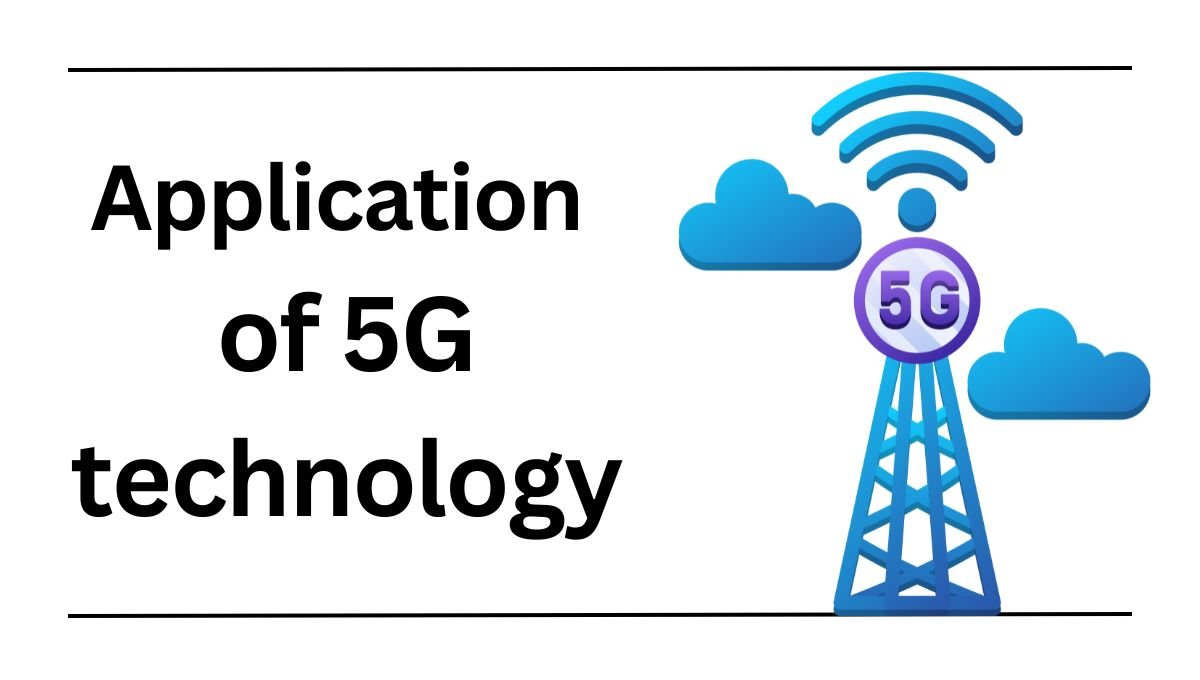
The world of technology has witnessed remarkable advancements over the years, and one such groundbreaking innovation is the advent of 5G technology. In this article, we will delve into the applications of 5G, its key features, and the profound impact it has on various sectors.
Introduction
Definition of 5G Technology
5G, the fifth generation of mobile networks, represents a leap forward in wireless communication. It is designed to provide faster speeds, lower latency, and increased connectivity compared to its predecessors.
Evolution from Previous Generations
To truly understand the significance of 5G, we must recognize its evolution from 1G to 4G and how each generation paved the way for the next. The transition to 5G signifies a quantum leap in technological capabilities.
Importance and Impact
The importance of 5G extends beyond just faster download speeds. Its impact is felt across various sectors, revolutionizing the way we connect, communicate, and conduct business.
Key Features of 5G
1. Blazing Speed:
Imagine downloading a full-length movie in mere seconds! 5G promises peak data rates of up to 20 gigabits per second (Gbps), compared to 4G’s average of 100 gigabits per second (Mbps). That’s a 200x improvement! This means lightning-fast downloads, seamless HD and even 4K/8K video streaming, and lag-free gaming experiences.
2. Ultra-Low Latency:
Ever get frustrated with buffering videos or sluggish game responses? 5G boasts drastically lower latency, measured in milliseconds (ms), compared to 4G’s tens of milliseconds. This near-instantaneous responsiveness opens doors for real-time applications like:
- Remote surgery: Imagine a surgeon performing a delicate operation on a patient miles away, with every movement of their instruments reflected precisely in real-time.
- Virtual reality: Experience immersive VR worlds without any lag or jitter, making it feel like you’re truly transported to another place.
- Autonomous vehicles: self-driving cars can communicate with each other and their surroundings in real-time, ensuring safer and smoother traffic flow.
3. Massive Capacity:
5G isn’t just about faster speeds for your phone; it’s about connecting everything! Its high capacity can handle a massive influx of devices, from billions of smartphones to countless Internet of Things (IoT) devices like:
- Smart homes: Imagine appliances that seamlessly communicate with each other, adjusting lighting, temperature, and entertainment based on your preferences.
- Industrial IoT: Factories can monitor machinery in real-time, optimize production processes, and predict potential maintenance issues before they occur.
- Smart cities: Traffic lights, parking meters, and even garbage bins can be connected to the network, leading to better traffic management, waste collection, and resource utilization.
Improved Coverage and Reliability:
5G utilizes a wider range of frequencies, including higher-frequency millimeter waves, which penetrate buildings and obstacles better than 4G’s lower frequencies. This means improved signal strength and coverage, even in densely populated areas and remote locations.
Enhanced Security:
5G incorporates robust security features to protect against cyberattacks and ensure the privacy of user data. This is crucial for mission-critical applications like healthcare and financial services.
Overall, 5G is not just an upgrade; it’s a revolution in wireless technology. Its key features promise to transform how we live, work, and interact with the world around us, unlocking a future of unimaginable possibilities.
Applications of 5G
Impact by Sector
- Consumer applications:
- Enhanced mobile internet experience (faster downloads, streaming, seamless browsing)
- VR/AR experiences with near-real-time responsiveness
- Smart homes and connected devices
- Remote healthcare and diagnostics
- Immersive entertainment and gaming
- Enterprise applications:
- Industrial automation and robotics
- Improved logistics and supply chain management
- Smart agriculture and precision farming
- Connected cities and infrastructure
- Business efficiency and remote collaboration
- Public sector applications:
- Public safety and emergency response
- Improved access to education and healthcare
- Environmental monitoring and disaster management
- Smart transportation and traffic management
Impact on Businesses
Enhanced Communication
Businesses benefit from improved communication with clients and within teams, fostering collaboration and efficiency.
Improved Efficiency
The increased speed and connectivity of 5G contribute to enhanced business processes, making operations more streamlined and responsive.
Opportunities for Innovation
The advent of 5G opens up opportunities for businesses to innovate, create new services, and stay ahead in a highly competitive landscape.
Infrastructure Requirements
The implementation of 5G requires significant infrastructure development, presenting challenges in terms of cost and logistics.
Cost Implications
While the benefits of 5G are immense, the initial investment and ongoing costs can pose challenges for businesses and service providers.
Future Trends in 5G
Continued Evolution
The journey of 5G does not end here. Ongoing research and development will lead to further improvements, ensuring the continuous evolution of this transformative technology.
Integration with Emerging Technologies
5G is set to integrate with emerging technologies like artificial intelligence and edge computing, opening up new possibilities for innovation and efficiency.
Conclusion of Application of 5g technology
In conclusion, the application of 5G technology extends far beyond simply faster internet speeds. Its impact on healthcare, education, businesses, and various other sectors is transformative. As we navigate the challenges and embrace the opportunities, 5G is poised to redefine the way we live, work, and connect.
Frequently Asked Questions (FAQs)
Is 5G safe for use in healthcare applications?
Yes, 5G comes with robust security measures, making it safe for applications such as remote patient monitoring and telemedicine.
What are the challenges businesses may face in adopting 5G?
Businesses may encounter challenges related to the initial infrastructure investment, ongoing costs, and ensuring data security
How does 5G contribute to the development of smart cities?
5G facilitates efficient public services, intelligent transportation systems, and enhanced connectivity, forming the backbone of smart city development.
Can 5G support the connectivity demands of the Internet of Things (IoT)?
Absolutely, 5G is designed to support the massive data transfer and connectivity requirements of the IoT.
What is the future of 5G technology?
The future of 5G involves continuous evolution, integration with emerging technologies like AI, and the exploration of new possibilities for innovation and efficiency.
5G
5G vs 4G: What’s the Real Difference?
Introduction
The transition from one generation to the next in the realm of mobile communication frequently seems like a leap into the future. But what exactly makes 5G stand apart from 4G? While 4G revolutionized mobile communication by making high-speed internet a standard, 5G promises to take connectivity to a whole new level.
In this article, we’ll break down the differences between 4G and 5G, exploring their unique features, benefits, and challenges. Let’s dive in!
Understanding 4G Technology
Evolution of 4G
4G, or the fourth generation of mobile networks, debuted in the late 2000s. It was a game-changer, introducing high-speed internet capable of supporting video streaming, online gaming, and advanced mobile applications.
Key Features of 4G
- Speed: With speeds up to 100 Mbps, 4G networks made it easy to browse, download, and stream seamlessly.
- Latency: Latency in 4G is around 50 milliseconds, which is sufficient for most real-time applications.
- Connectivity: 4G networks significantly improved data transfer and call quality compared to 3G.
Introduction to 5G Technology
What is 5G?
5G is the fifth generation of mobile networks, promising blazing-fast speeds, ultra-low latency, and the ability to connect a massive number of devices simultaneously. Launched globally in the late 2010s, 5G is designed to support emerging technologies like IoT, augmented reality (AR), and autonomous vehicles.
Core Features of 5G
- Enhanced Speed: Speeds can reach up to 10 Gbps, making it up to 100 times faster than 4G.
- Ultra-Low Latency: With latency as low as 1 millisecond, 5G enables near-instantaneous communication.
- Massive Connectivity: 5G can support up to 1 million devices per square kilometer, a critical improvement for IoT and smart cities.
Key Differences Between 4G and 5G
Speed Comparison
While 4G offers respectable speeds, 5G delivers a dramatic increase, enabling seamless 4K video streaming and large file transfers in seconds.
Latency Differences
Latency in 5G is almost negligible, making it ideal for applications like remote surgery and real-time gaming, where every millisecond counts.
Network Capacity
5G’s ability to handle a high density of devices ensures better performance in crowded areas, like stadiums or concerts.
Coverage Area and Deployment
4G networks currently cover a broader area than 5G, but as 5G infrastructure expands, it’s expected to catch up.
4g vs 5g comparison table
| Feature | 4G | 5G |
|---|
| Launch Year | 2009-2010 | 2019-2020 |
| Peak Speed | Up to 1 Gbps | Up to 10 Gbps |
| Latency | 20-50 milliseconds | 1-10 milliseconds |
| Bandwidth | Lower bandwidth compared to 5G | Significantly higher bandwidth |
| Frequency Bands | 700 MHz to 2.6 GHz | 24 GHz to 100 GHz |
| Capacity | Limited devices per network cell | Supports a higher density of devices |
| Energy Efficiency | Moderately energy efficient | More energy-efficient per data unit |
| Use Cases | Mobile internet, streaming, video calls | IoT, smart cities, autonomous vehicles, AR/VR |
| Coverage | Wider coverage globally | Limited initially, expanding gradually |
| Technology | LTE (Long-Term Evolution) | mmWave, Sub-6 GHz, Massive MIMO |
| Connection Density | Up to 100,000 devices per square kilometer | Up to 1 million devices per square kilometer |
| Deployment Cost | Lower relative cost | Higher infrastructure cost initially |
| Primary Benefits | Faster internet speeds than 3G | Ultra-low latency, high speeds, and reliability |
| Drawbacks | Struggles with high congestion areas | Requires dense infrastructure (small cells) |
Benefits of 5G Over 4G
Advantages in Daily Life
- Streaming and Gaming: Experience buffer-free streaming and lag-free gaming, even in high resolutions.
- IoT Integration: From smart homes to wearable tech, 5G enhances the functionality of connected devices.
Business and Industrial Impacts
- Smart Cities: 5G facilitates real-time data sharing, powering innovations like traffic management and public safety systems.
- Automation and Robotics: Industries can achieve greater efficiency with 5G-enabled automation and robotics.
Challenges of 5G Technology
Infrastructure Demands
Deploying 5G requires building new towers and upgrading existing infrastructure, which is both time-consuming and expensive.
Device Compatibility
Not all devices support 5G, necessitating upgrades for consumers and businesses alike.
Cost of Deployment
The transition to 5G involves significant costs for telecom companies, which could impact pricing for end users.
How 4G Still Holds Relevance
Existing Infrastructure
4G networks are well-established, ensuring reliable connectivity in areas where 5G is not yet available.
Accessibility and Affordability
For users who don’t require the advanced features of 5G, 4G remains a cost-effective and efficient option.
The Future of Connectivity
5G’s Potential to Revolutionize Communication
With its unparalleled speed and connectivity, 5G is paving the way for technological advancements we can only imagine today.
What Lies Beyond 5G?
Research into 6G and beyond suggests even more transformative possibilities, including holographic communication and brain-computer interfaces.
Conclusion OF 5G vs 4G
Both 4G and 5G have their unique strengths and challenges. While 4G continues to serve as a reliable and affordable option for many, 5G is undoubtedly the future of connectivity. As the technology matures, it will unlock opportunities we’ve yet to fully grasp.
FAQs
1. What is the primary difference between 4G and 5G?
The primary difference is speed and latency—5G offers faster speeds and significantly lower latency than 4G.
2. Can 5G completely replace 4G?
Not yet. 5G is still being deployed, and 4G remains essential in areas without 5G coverage.
3. Do I need a new phone for 5G?
Yes, a 5G-compatible phone is required to access 5G networks.
4. How does 5G impact battery life?
5G can consume more battery, but modern devices are optimized to handle the increased demand efficiently.
5. Is 5G available everywhere?
No, 5G coverage is still expanding and is not yet available in many rural or remote areas.
5G
How 5G technology works
Introduction
Ever wondered why everyone is so hyped about 5G? It’s not just another generation of mobile networks—it’s a game-changer! 5G technology promises lightning-fast speeds, near-instant connectivity, and the power to revolutionize everything from smart cities to healthcare. Let’s dive into how this amazing technology works and what makes it so unique.
From 1G to 4G: A Quick Recap
To understand 5G, let’s rewind a bit.
- 1G: The era of analog voice calls.
- 2G: introduced digital voice and text messaging.
- 3G: Brought mobile internet to life.
- 4G: Revolutionized streaming with faster internet speeds.
Each generation was a leap forward, but even 4G has its limitations.
Key Limitations of 4G
- Speed: Struggles with handling high traffic in dense areas.
- Latency: Not fast enough for real-time applications like autonomous vehicles.
What Makes 5G Different?
Defining Characteristics of 5G
5G isn’t just faster—it’s smarter and more efficient.
- Speeds up to 100 times faster than 4G.
- Ultra-low latency, meaning minimal delay in data transmission.
- Capacity to connect millions of devices simultaneously.
Speed and Latency Improvements
With 5G, downloading a movie takes seconds, and online gaming feels like a face-to-face duel with zero lag. Impressive, right?
Massive Device Connectivity
From smart homes to wearable devices, 5G enables a network where everything is interconnected.
How Does 5G Technology Work?
How 5G technology works
Key Components of 5G Infrastructure
Small Cells
Tiny base stations scattered throughout cities provide uninterrupted coverage.
Massive MIMO (Multiple Input, Multiple Output)
Think of it as a multi-lane highway for data—more lanes mean more traffic handled efficiently.
Beamforming
Directs signals precisely to devices, avoiding interference.
Spectrum Bands Used in 5G
Low Band
Great for wide coverage but offers moderate speeds.
Mid Band
Balances speed and coverage, ideal for cities.
High Band (mmWave)
Blazing fast speeds but limited range—perfect for hotspots.
The Role of Network Slicing in 5G
What is Network slicing?
Network slicing allows one 5G network to act as multiple virtual networks, tailored for different needs.
Benefits of Network Slicing for Businesses
- Prioritized data for critical applications.
- Customizable bandwidth allocation.
Real-World Applications of 5G
IoT: The Internet of Things, Powered by 5G
5G’s ability to connect a massive number of devices simultaneously, combined with its low latency and high reliability, makes it the ideal technology for powering the Internet of Things (IoT).
Potential Applications of IoT with 5G:
- Smart Cities: 5G can enable the development of smart cities by connecting various devices and sensors, such as traffic lights, smart streetlights, and environmental sensors. This can lead to improved traffic management, energy efficiency, and public safety.
- Smart Homes: 5G can power smart homes by connecting devices like smart thermostats, security cameras, and voice assistants. This can enhance home automation, energy efficiency, and security.
- Industrial IoT: 5G can revolutionize industries by enabling the connection of machines, sensors, and robots. This can lead to increased productivity, efficiency, and safety in manufacturing, logistics, and other sectors.
Autonomous Vehicles: The Future of Transportation
Autonomous vehicles require reliable, low-latency communication to make real-time decisions and coordinate with other vehicles and infrastructure. 5G’s low latency and high reliability make it the ideal technology for supporting autonomous vehicle technology.
How 5G Can Support Autonomous Vehicles:
- Vehicle-to-Vehicle (V2V) Communication: 5G enables real-time communication between vehicles, allowing them to share information about their speed, direction, and braking.
- Vehicle-to-Infrastructure (V2I) Communication: 5G allows vehicles to communicate with infrastructure, such as traffic lights and road signs, to improve traffic flow and safety.
- Remote Control of Autonomous Vehicles: 5G enables remote control of autonomous vehicles, allowing operators to intervene in case of emergencies or complex situations.
Remote Healthcare: Transforming Healthcare Delivery
5G’s high bandwidth and low latency can revolutionize healthcare delivery by enabling remote consultations, telemedicine, and remote surgery.
Potential of 5G in Remote Healthcare:
- Remote Consultations: 5G enables high-quality video conferencing, allowing doctors to consult with patients remotely.
- Telemedicine: 5G can enable remote monitoring of patients’ vital signs, allowing for early detection and intervention of health issues.
- Remote Surgery: 5G’s low latency and high reliability make it possible to perform remote surgery, allowing surgeons to operate on patients from a distance.
Challenges and Opportunities of 5G in Healthcare:
- Security and Privacy: Protecting patient data is a major concern in healthcare. Strong security measures must be implemented to ensure the confidentiality and integrity of patient information.
- Regulatory Hurdles: Regulations and standards need to be developed to ensure the safe and effective use of 5G in healthcare.
- Infrastructure Costs: Deploying 5G infrastructure in rural and underserved areas can be costly. Government and industry partnerships are needed to bridge the digital divide.
Conclusion
5G technology is poised to revolutionize the way we live, work, and communicate. With its unprecedented speeds, low latency, and massive capacity, 5G is unlocking a new era of innovation and connectivity. From powering the Internet of Things to enabling autonomous vehicles and remote healthcare, 5G’s potential is vast.
However, the full realization of 5G’s potential will depend on several factors, including the deployment of robust 5G networks, the development of new applications and services, and the adoption of advanced technologies like edge computing and artificial intelligence. As 5G continues to evolve, we can expect to see even more exciting developments in the years to come.
FAQ
What is the physics behind 5G?
Compared to its predecessor, 4G, 5G offers ten times as much capacity. Because 5G employs additional higher-frequency waves to encode and transmit data in addition to low and medium-frequency radio waves, the increased bandwidth is made possible. Bandwidth is comparable to a highway’s width.
How does 5G signal travel?
Radio frequencies, sometimes referred to as spectrum, are used by wireless communications systems to transmit data over the atmosphere. 5G functions similarly, although it makes use of higher, less congested radio frequencies. As a result, it can convey more data much more quickly.
Who has the largest 5G network in the world?
Huawei, Shentong Metro, and China Mobile Shanghai Create the Biggest 5G Private Rail Network in the World The largest 5G private rail network in the world is being built by Huawei, Shentong Metro, and China Mobile Shanghai.
Is 5G faster than LTE?
The speed and reduced latency of 5G are its primary advantages over 4G LTE. In order to provide faster speeds, lower latency, higher capacity, and more dependable broadband than 4G LTE networks, 5G networks are based on a new radio technology called 5G NR, which uses high-frequency radio waves.
5G
5g network components
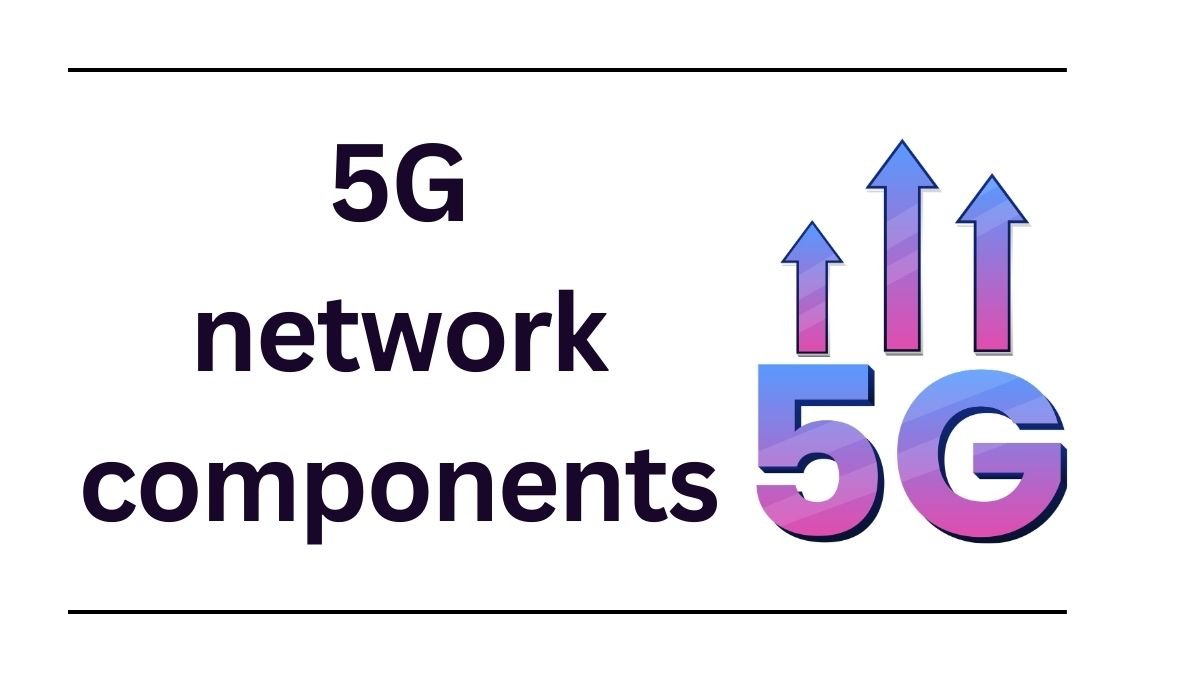
5G has emerged as a game-changer, promising unprecedented speed, reliability, and connectivity. As we delve into the intricacies of 5G network components, it becomes evident that this revolutionary technology is not merely an upgrade but a paradigm shift. Let’s unravel the key components shaping the future of connectivity.
Introduction to 5G Network Components
The journey into the world of 5G begins with an understanding of its core components. Unlike its predecessors, 5G is not just about faster internet on your smartphone; it’s a holistic transformation of the entire network infrastructure.
The Core Elements of 5G Networks
1. Millimeter Waves
One of the pillars of 5G is the utilization of millimeter waves, enabling higher data transfer rates. These waves, operating in the 30-300 GHz range, pave the way for faster and more efficient communication.
2. Small Cells
In contrast to traditional large-cell towers, 5G relies on a dense network of small cells. These compact stations enhance coverage and capacity, ensuring a seamless user experience in densely populated areas.
3. Massive MIMO
Massive Multiple Input, Multiple Output (MIMO) technology plays a crucial role in 5G networks. By using numerous antennas, massive MIMO optimizes data transfer, minimizing latency, and boosting network efficiency.
Radio Access Network (RAN) in 5G
1. Base Stations
At the heart of 5G’s RAN are base stations, connecting devices to the network. These stations facilitate the exchange of data, ensuring a reliable and high-speed connection.
2. Antennas
The deployment of advanced antennas is a key component in achieving the high speeds promised by 5G. These antennas come in various forms, each catering to specific needs and scenarios.
3. Backhaul
Efficient backhaul mechanisms ensure the seamless flow of data between the core network and the RAN. The backhaul is a critical aspect of 5G infrastructure, contributing to low latency and high bandwidth.
Core Network Components
1. Cloud-native Architecture
5G embraces a cloud-native architecture, decentralizing network functions. This approach enhances flexibility, scalability, and resource utilization.
2. Network Slicing
Network slicing allows the creation of multiple virtual networks within the same physical infrastructure. This innovation enables tailored solutions for diverse applications, from autonomous vehicles to augmented reality.
3. Edge Computing
The integration of edge computing in 5G networks brings computing resources closer to end-users. This reduces latency and enhances the overall performance of applications and services.
Devices and User Equipment
1. 5G Smartphones
The widespread adoption of 5G smartphones is a driving force behind the network’s growth. These devices support higher data speeds, enabling users to experience the full potential of 5G connectivity.
2. IoT Devices
The Internet of Things (IoT) ecosystem thrives on 5G connectivity. From smart homes to industrial sensors, 5G enables a massive influx of connected devices, transforming how we interact with our surroundings.
3. Wearables
Wearable devices, equipped with 5G capabilities, redefine the user experience. From health monitoring to augmented reality glasses, wearables leverage 5G to offer seamless and immersive functionalities.
5G Security Measures
1. Encryption
Ensuring the security of data transmission is paramount in 5G networks. Robust encryption mechanisms safeguard sensitive information, protecting users from potential cyber threats.
2. Authentication
Identity verification is a crucial aspect of 5G security. Robust authentication protocols prevent unauthorized access and ensure the integrity of the network.
3. Network Slicing Security
As network slicing becomes integral to 5G, addressing security concerns specific to each virtual network becomes imperative. Customized security measures for individual slices fortify the overall network.
Challenges and Future Developments
1. Interference and Obstacles
Despite its potential, 5G faces challenges related to interference and obstacles. Addressing these issues is crucial for ensuring consistent and reliable connectivity.
2. Integration with Existing Networks
Integrating 5G with existing networks poses challenges. Compatibility issues need to be resolved for a smooth transition and coexistence with 4G and other technologies.
3. Anticipated Technological Advancements
The future holds promises of technological advancements in 5G, including improved efficiency, higher data rates, and novel applications. Staying ahead of the technological curve is essential for harnessing the full potential of 5G.
The Impact of 5G Network Components
1. Enhanced Connectivity
5G’s impact extends beyond speed; it revolutionizes connectivity. From faster downloads to real-time communication, 5G sets the stage for a connected future.
2. Transformative Industries
Industries such as healthcare, manufacturing, and transportation undergo transformative changes with the integration of 5G. Enhanced efficiency and communication redefine traditional processes.
3. Advancements in Healthcare
The healthcare sector witnesses groundbreaking advancements with 5G, from remote surgeries to real-time patient monitoring. The reliability of 5G connectivity plays a pivotal role in these innovations.
Comparisons with Previous Generations
1. Speed and Latency
Comparing 5G with its predecessors reveals unparalleled speed and reduced latency. The difference is not just incremental; it’s a leap into a new era of instantaneous communication.
2. Network Capacity
The increased network capacity of 5G enables the simultaneous connection of a massive number of devices. This scalability is a significant leap forward from previous generations.
3. Use Cases
From smart cities to smart agriculture, 5G’s use cases surpass the boundaries of traditional networking. Exploring these diverse applications reveals the versatility of 5G technology.
The Global Rollout of 5G
1. Leading Countries in 5G Adoption
Certain countries lead the global race in adopting 5G technology. Understanding the trends in these nations provides insights into the global evolution of 5G.
2. Economic Implications
The economic impact of 5G is profound, influencing industries, job markets, and innovation. Nations investing in 5G have witnessed a surge in economic growth and technological advancements.
3. Regulatory Frameworks
The development and implementation of robust regulatory frameworks are essential for the successful deployment of 5G. Balancing innovation with ethical and safety considerations is a delicate task.
Future Applications and Possibilities
1. Augmented Reality (AR) and Virtual Reality (VR)
The combination of 5G and AR/VR opens up new dimensions of immersive experiences. From gaming to professional training, the possibilities are limitless.
2. Autonomous Vehicles
5G plays a pivotal role in the evolution of autonomous vehicles. Real-time communication and data exchange are critical for ensuring the safety and efficiency of self-driving cars.
3. Smart Cities
The concept of smart cities is not a distant dream but a tangible reality with 5G. From intelligent traffic management to energy-efficient solutions, 5G transforms urban living.
Addressing Concerns and Misconceptions
1. Health Concerns
Public concerns regarding the health implications of 5G require transparent communication. Addressing these concerns with scientific facts is crucial for fostering public trust.
2. Environmental Impact
Examining the environmental impact of 5G infrastructure is essential. Balancing technological progress with eco-friendly practices ensures a sustainable future.
3. Privacy Issues
As 5G facilitates a hyper-connected world, privacy concerns come to the forefront. Striking a balance between connectivity and individual privacy is an ongoing challenge.
The Role of 5G in Industry 4.0
1. Smart Manufacturing
In the era of Industry 4.0, 5G plays a pivotal role in smart manufacturing. From predictive maintenance to efficient supply chain management, 5G transforms the manufacturing landscape.
2. Supply Chain Optimization
Efficient supply chain management becomes a reality with 5G. Real-time tracking, data analytics, and automation enhance the overall efficiency of supply chain operations.
3. Industrial IoT
The integration of 5G with the Industrial Internet of Things (IoT) ushers in a new era of connectivity and control. Industrial processes become more agile, responsive, and intelligent.
Tips for Harnessing the Power of 5G
1. Business Integration
Businesses can leverage 5G by integrating it into their operations. From improved customer experiences to enhanced efficiency, the benefits are vast.
2. User Education
Educating users about the capabilities and implications of 5G is essential. Empowered users make informed choices, contributing to the responsible and widespread adoption of 5G.
3. Collaborative Innovation
The true potential of 5G unfolds when industries collaborate on innovative solutions. Cross-sector collaborations drive advancements and open up new possibilities for 5G applications.
Conclusion
In conclusion, 5G network components represent the cornerstone of the digital future. From millimeter waves to advanced security measures, each element contributes to the unparalleled connectivity and transformative potential of 5G. Embracing this technology requires addressing challenges, fostering innovation, and navigating ethical considerations. As we stand on the brink of a connected era, the impact of 5G extends beyond faster downloads—it reshapes industries, societies, and daily experiences.
FAQs About 5G Network Components
Is 5G safe for health?
Addressing common concerns about the potential health impact of 5G.
How does 5G differ from previous generations?
Exploring the key differences in speed, latency, and network capacity.
What industries benefit the most from 5G?
Highlighting the transformative impact of 5G on various industries.
How can businesses integrate 5G effectively?
Providing practical tips for businesses to harness the power of 5G.
What are the future possibilities of 5G technology?
Delving into the potential applications and advancements in the 5G landscape.

 5G2 years ago
5G2 years agoHow 5G Technology Will Revolutionize Our Lives and Work

 5G2 months ago
5G2 months agoWhat is the difference between 5G and 5G Plus?

 Tech5 months ago
Tech5 months ago3d Printer Technology (Application) (History) And (Types)

 Computer2 years ago
Computer2 years ago“Bleeping Computer: Your Ultimate Guide to Cybersecurity”

 5G1 year ago
5G1 year agoDifference between 5G nsa and 5G sa

 5G1 year ago
5G1 year agoHow does 5g work on iPhone?

 5G1 year ago
5G1 year agoThe Future of 5G Technology : Revolutionizing Connectivity

 5G2 months ago
5G2 months agoWho has the fastest 5G network?

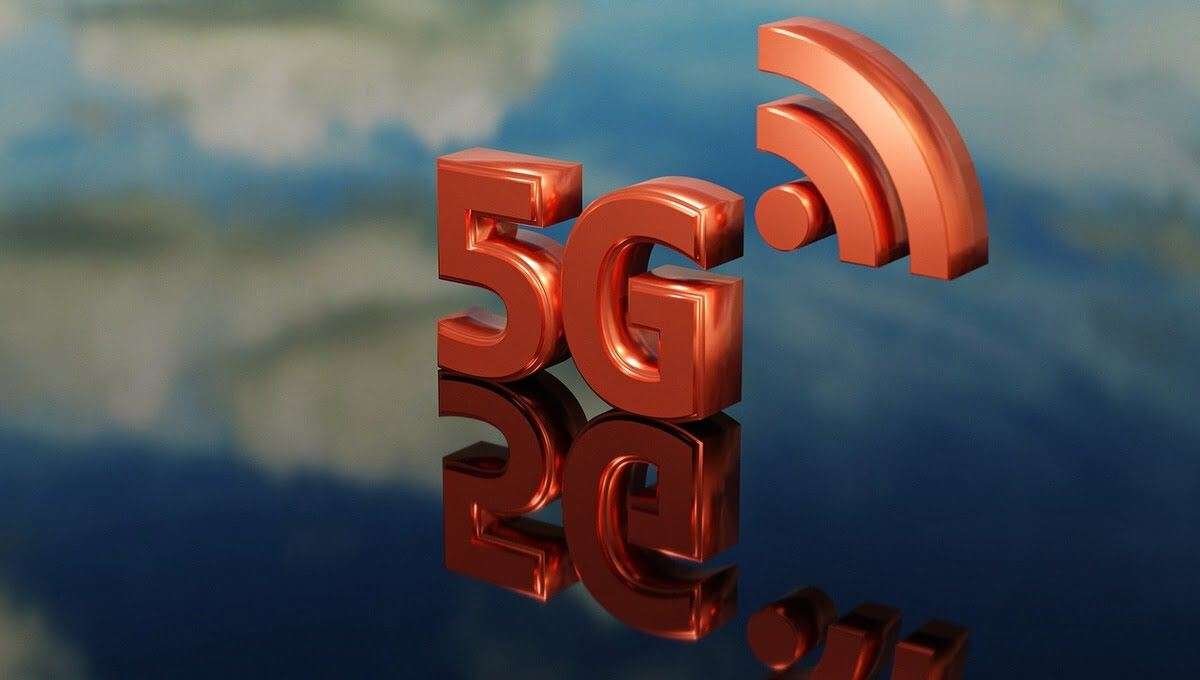

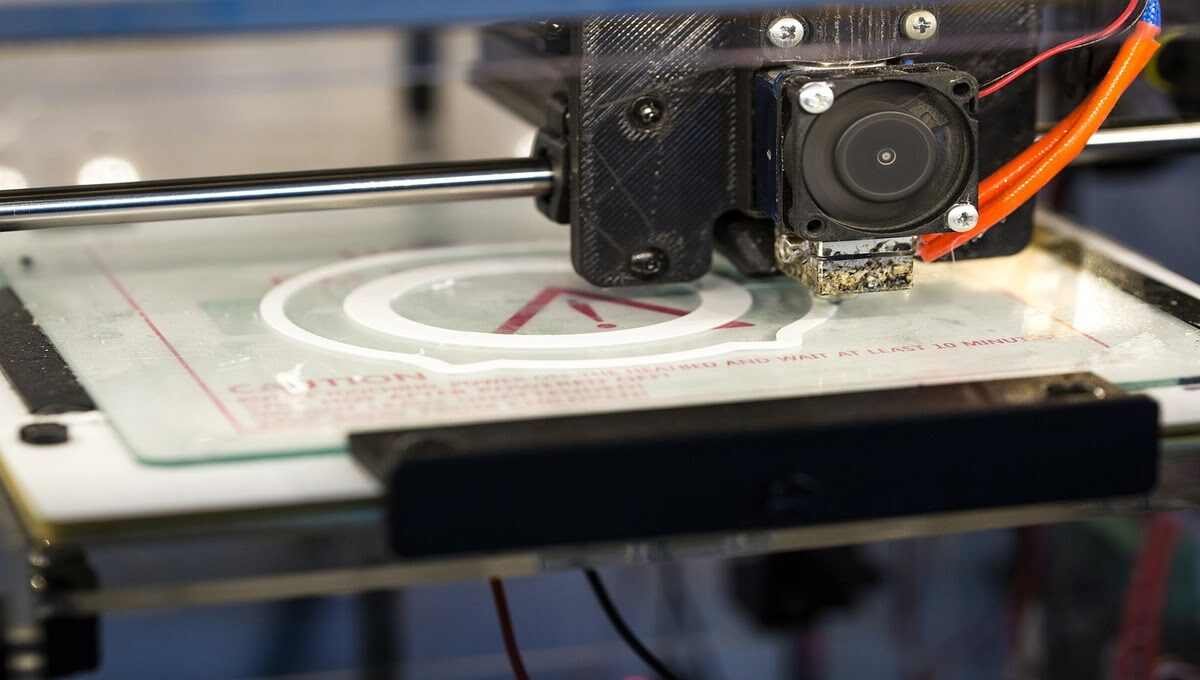

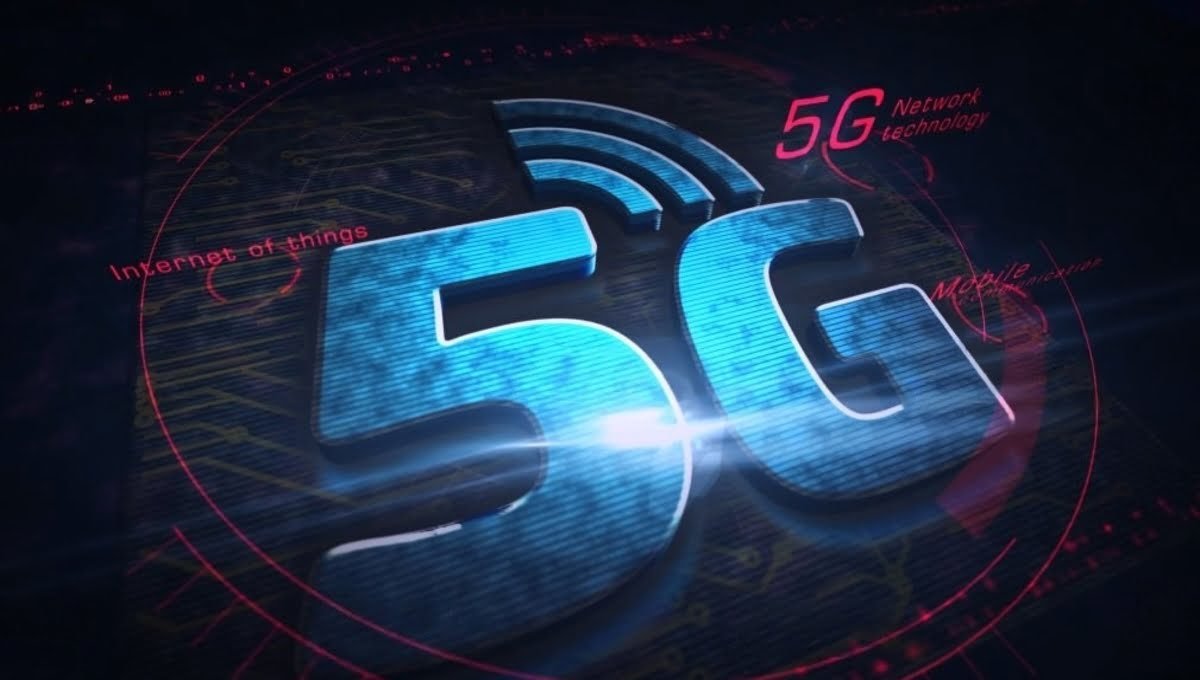
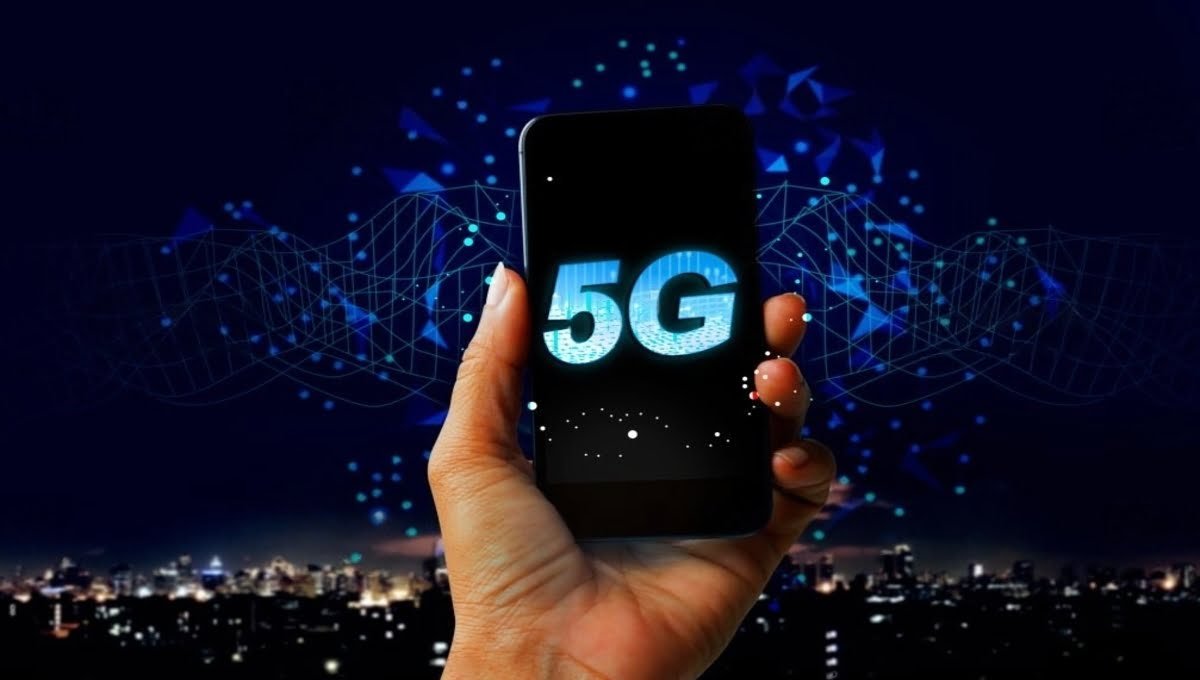
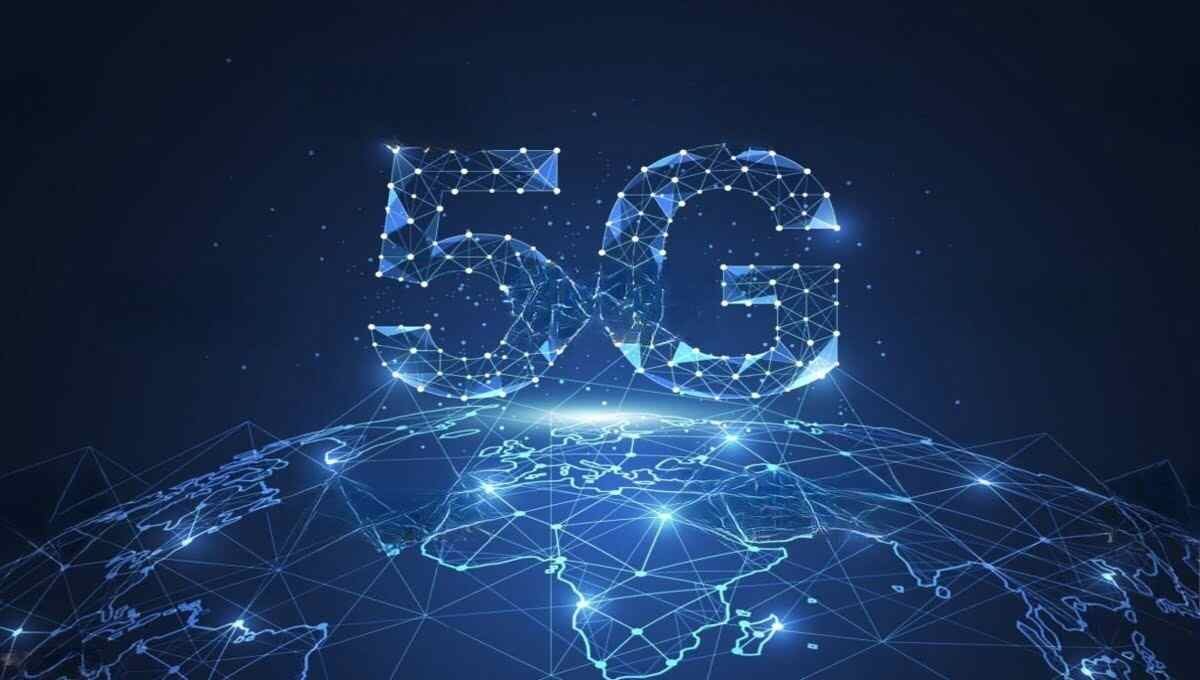


Pingback: 5g network components : Unraveling the Future Connectivity